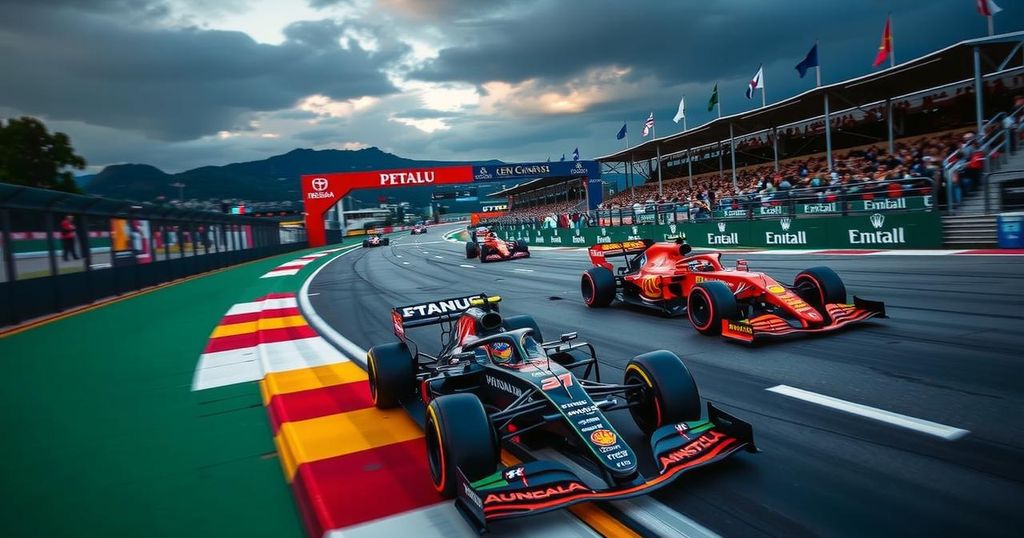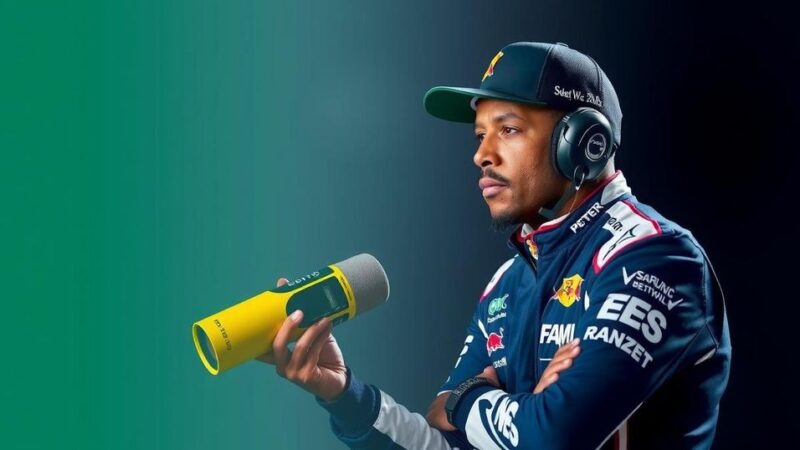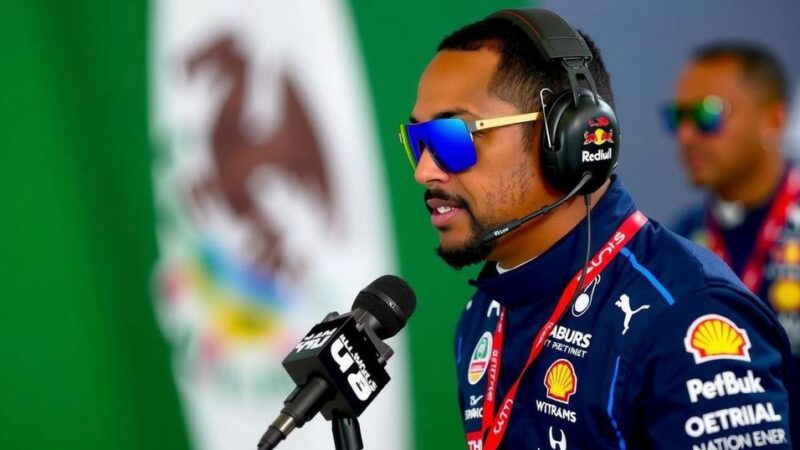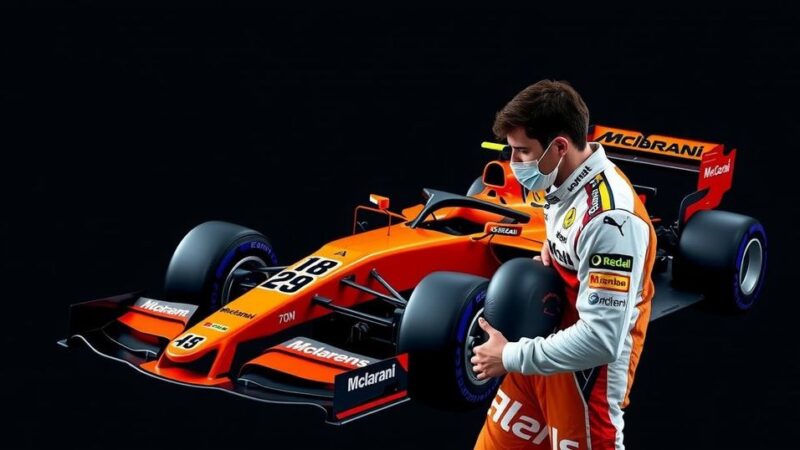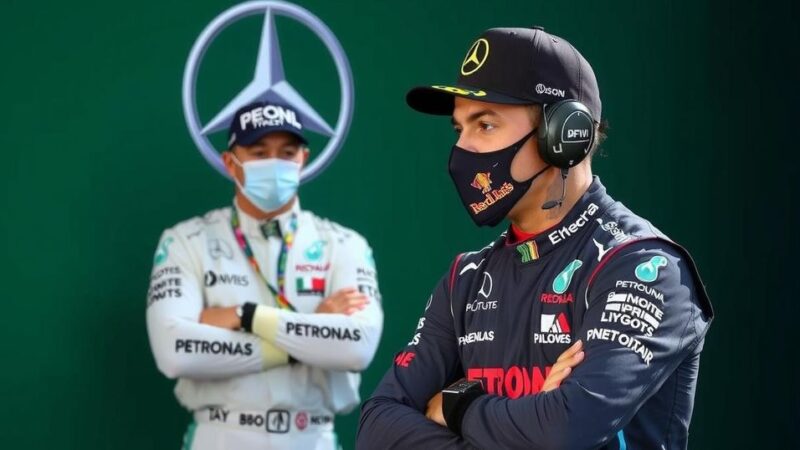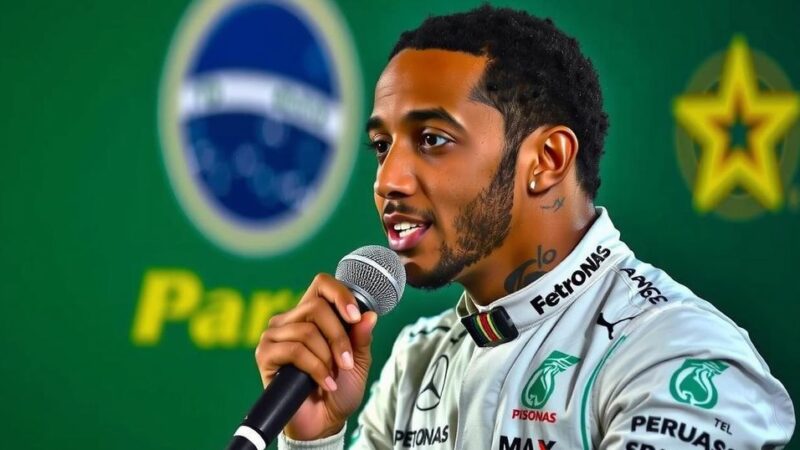This article addresses the uncertain landscape of Formula 1 broadcasting rights in Brazil and the United States, particularly as the Brazilian Grand Prix concludes the Americas triple-header. It highlights the financial struggles faced by Band in Brazil, potential shifts towards Globo, and the implications of local driver success. In the US, a strong partnership with ESPN has elevated F1’s viewership, though future broadcasting deals may attract multiple suitors as interest in the sport continues to grow.
As the Brazilian Grand Prix draws the curtain on Formula 1’s triple-header in the Americas, significant attention turns to the clarity of broadcasting rights for F1 in both Brazil and the United States, with contracts in effect until the end of 2025. Following a formidable victory for Ferrari in Mexico, the competition for both world championships remains intense, captivating a global audience eager to witness the dramatic developments among the leading teams. Complicating these media contracts is the potential impact of Brazilian driver Gabriel Bortoleto’s rise, as his success in Formula 2 could substantially enhance F1’s viewership in Brazil. Currently, Brazilian broadcaster Band, which renewed its deal in 2022 for a three-year term, faces financial challenges and is reportedly seeking to renegotiate terms for the last season of this agreement. Although there were considerations for terminating this contract, Band has expressed a commitment to see the deal through, with the possibility of increased revenue contingent on Bortoleto’s potential signing with Sauber. In the backdrop, Globo, Brazil’s largest commercial television network, anticipates re-establishing itself as the primary broadcaster post-2025 and is believed to have made significant strides toward securing a deal that would cover the 2025 season, contingent upon Band’s agreement. As freelance F1 journalist Julianne Cerasoli noted, “It turns out on Liberty’s side they had already agreed with Globo that there would be 15 races on free to air TV.” Recent indications suggest that negotiations remain fluid, with Band asserting its intention to fulfill its current contractual obligations. Turning to the United States, Liberty Media’s acquisition of F1 broadcasting rights has markedly increased the sport’s popularity. ESPN, which has been broadcasting F1 since 2018, has seen a surge in viewership, leading to a significant deal worth approximately $90 million annually initiated in 2022. The 2022 season garnered record-setting viewership figures, and ESPN continues to provide comprehensive coverage of all races, including dedicated pre-race programming. Looking forward, there remains uncertainty about whether ESPN will renew its contract in 2026 or if a new broadcaster will enter the fray, eager to capitalize on the growing F1 fan base and the rising value of the rights. Reports suggest there is a 50/50 chance for either outcome, indicating that demand for F1 content in the US market will likely drive competitive bids for forthcoming broadcasting rights.
The article examines the current state and future predictions of Formula 1 broadcasting rights in Brazil and the United States amid growing interest in the sport. It highlights the challenges faced by existing broadcasters, particularly Band in Brazil, and explores potential new agreements, particularly involving Globo, as well as the transitions in broadcasting strategies within the US driven by rising viewership figures. Additionally, the significance of local talent, such as Gabriel Bortoleto, is assessed regarding its impact on market interest and ratings, emphasizing the intricate relationship between sports popularity and broadcasting contracts. The article also touches upon how Liberty Media has facilitated increased access and visibility for F1, especially within American markets, during a time when the sport is experiencing significant growth in viewership.
In conclusion, as the Brazilian Grand Prix concludes F1’s race series in the Americas, the focus shifts to the future of broadcasting agreements in Brazil and the United States. With Band striving to meet its contractual obligations amid financial strains, coupled with Globo’s strategic moves, the landscape of F1 broadcasting is poised for transformation. Similarly, the competitive bidding environment in the US, underpinned by soaring popularity, sets the stage for potential shifts in broadcasting rights. The resolution of these broadcasting deals could significantly influence the accessibility and popularity of F1 in both regions moving forward.
Original Source: www.autosport.com
